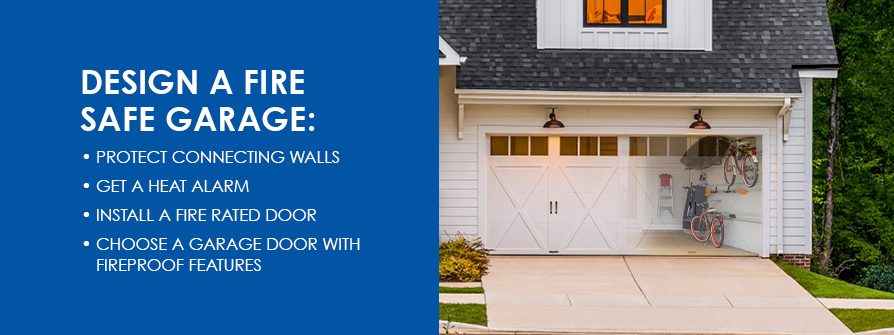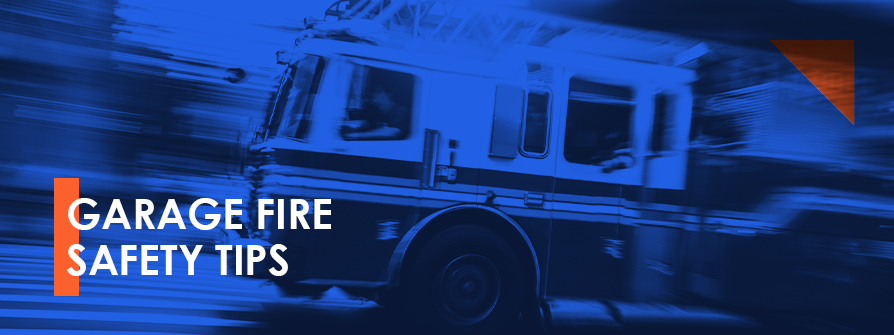Garage Fire Safety Tips
Though many homeowners spend time fireproofing their homes, it’s easy to forget about the garage. However, making your garage fire-safe is an essential part of protecting your family and your home from fire damage.
Garage fires are more dangerous and more costly than fires starting in other areas of the home. In fact, garage fires result in an average of 30 deaths, 400 injuries and $457 million in property loss every year in the United States.
Garage fires also tend to spread faster than other home fires, which makes it even more important to keep them from starting in the first place. Use these three garage fire safety tips to prevent fires and make your garage safer for you and the other members of your household.

1. Follow Guidelines for Electrical Safety
According to the U.S. Fire Administration, electrical malfunctions are the leading cause of garage fires. The best way to protect your home, then, is to stop a fire before it starts by doing the following:
- Install GFCI Circuit Breakers: Ground fault circuit interrupters (GFCIs) are usually installed in kitchens and bathrooms to protect people from electrical shock. However, you can also install them in your garage to prevent overheating and resulting fire.
- Avoid Extension Cords: Avoid plugging charging appliances into extension cords, since they can overheat.
- Plug in One Appliance at a Time: Overloading electrical outlets is a common cause of electrical fires. Prevent overloads by plugging in only one charging appliance at a time.
2. Store Flammable Materials Properly
Flammable materials commonly stored in garages include gasoline, aerosol cleaning products, lighter fluid, paint, paint thinner, propane and oil-based cleaning products. These tips can help you use these materials safely:
- Store Flammable Materials Away From the House: Flammable materials should be stored away from the home, in a shed if possible. If you must store flammable materials in the garage, be sure to keep them in approved containers, away from outlets and electrical appliances.
- Don’t Pour Gas in the Garage: You shouldn’t pour from portable gasoline containers while inside the garage. Instead, pour gas outside and clean up spills if they occur.
- Check Your Car for Leaks: Brake fluid and gasoline are both highly flammable. Keep your garage safe by periodically checking your car for leaks.

3. Design a Fire-Safe Garage
Elements of your garage’s construction can contribute to fire safety as well. Try these tips to design a fire-safe garage:
- Protect Connecting Walls: Install 1/2 inch gypsum board on walls that connect to the inside of the house and 5/8 inch gypsum board for ceilings under an occupied part of the house.
- Get a Heat Alarm: Heat alarms alert you to fire. They work better than smoke alarms in garages because they’re less sensitive to dust and humidity.
- Install a Fire-Rated Door: Choose a self-latching and closing fire-rated door from your garage to the inside of the house. This makes it harder for fire to migrate inwards.
- Choose a Garage Door With Fireproof Features: This prevents your door from catching fire and keeps fire from spreading outside, as well.
Prevent Fires With Blankenship
At Blankenship Garage Doors, we believe your garage door should be safe, as well as functional. If you’re hoping to fireproof your garage, we can help. Call Blankenship today for more information on our fire-rated garage doors.

